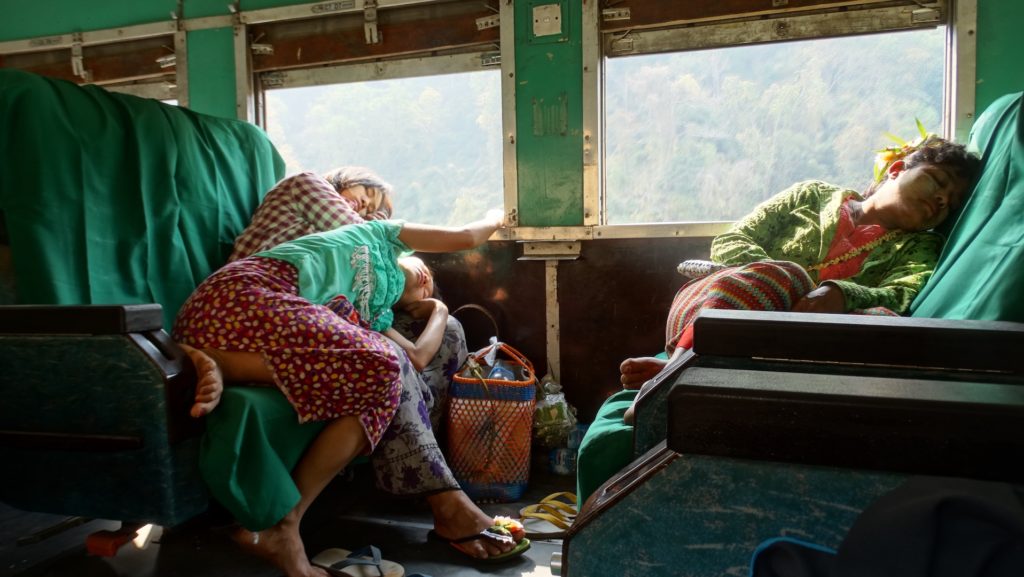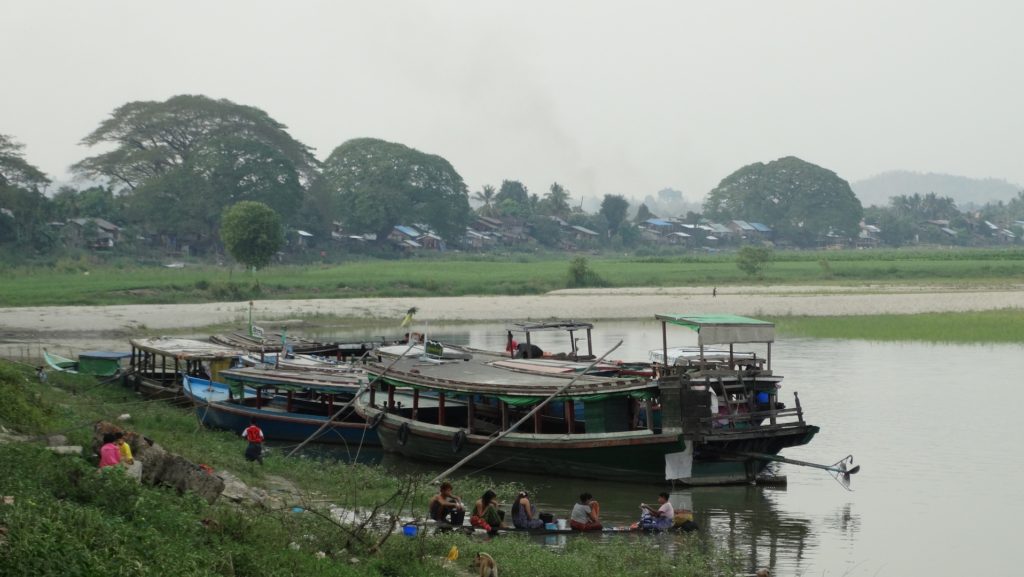FOLLOWING ORWELL TO KATHA, PART 1
Among the many dominions in the British Empire, Burma (as it was called then) can seem overshadowed by the Raj HQ in India. During the late 19th century the Indian immigrant population had been growing steadily; and were disproportionately represented in the higher echelons of the colonial administration. When a young Indian Imperial Police Officer called Eric Arthur Blair was assigned a posting in Katha, he dutifully went. It would serve as the inspiration for the fictional town of Kyauktada and his first novel. Eric wrote Burmese Days under the pseudonym of George Orwell.
I had started reading the book just before travelling to Myanmar from Malaysia and my aim was to complete it before arriving in Katha. A phenomenally slow reader, it was my companion for about a week beforehand and sustained me during several long journeys. The most arduous was the train between Mandalay and Naba (the closest station to Katha).
Train Travel in Myanmar
Burmese railways were introduced by the British in the late 19th century. Although various reconstructions have taken place, it is for the most part rudimentary, grindingly slow and very bouncy. In spite of this, I still favour train travel over road in South East Asia for several reasons. Firstly, I feel safer on a train as I don’t have to overcome my innate fear of being involved in a high speed, head-on collision every 3-5 mins. Train drivers, unlike those behind the wheel, don’t have the need to overtake other vehicles on blind corners. Secondly, I can put my head, arms, camera or anything else out of the window, and often door, during travel. This is the best way to enjoy the passing countryside and purchase food whilst stationary. It’s also recommended if you want to decapitate yourself on a tunnel entrance. Lastly, it can lead to impromptu conversations with fellow passengers. Regardless of whether either of you want to have a conversation.
The Case of the Missing Passengers
So, minus serious injury, I spent 17 hrs on the train from Mandalay to Naba. Before boarding the train in Mandalay, I got chatting to a man on the platform. Taller and broader than many Burmese men, he had a face furrowed with several scars. We exchanged the normal pleasantries and continued the conversation in our seats – as he chose to sit opposite me. He produced a limp, leather wallet which contained various pictures of himself in military fatigues or with members of his family. I gleaned that he had been discharged from the army due to an injury on the field of battle, and had become estranged from his wife and children. The faded pictures now only serving as a solemn reminder of what he had lost.
A few hours into the journey, a lanky, animated man with a closely shaven head got on and sat across the aisle from us. The ex-soldier quickly befriended him with the help of a clear spirit that he had been swigging since we left Mandalay.
For the next couple of hours they engaged in ritual, male, drunken bonhomie: loud belly laughs, wild gesticulation, shoulder slapping and melancholy reflection. And, increasingly, the more senior, ex military man seemed to take on a paternal role; comforting and admonishing the younger man in equal measure.
The Disappearance
At one of the many lengthy station stops, both men got off to stretch their legs, or possibly purchase some more refreshments. As the train shuffled and clattered out of the station, their seats remained empty. An hour afterwards the younger man’s battered brown suitcase and the older man’s snacks were still there, minus their owners.
When a conductor made his rounds he appeared to ask some of the locals nearby about the belongings. He then proceeded to open the suitcase. Inside were a couple of crumpled items of clothing and very little else. Along with the conductor and other passengers nearby, I can only speculate what happened to the pair. Part of me likes to fantasise that it was some sort of conspiracy. Perhaps both men already knew each other and they intended to get off at the station? The suitcase merely a prop. Perhaps they had fallen out and the ex-military man, consumed by nihilistic despair at his chequered past, had flown into a rage and attacked the younger man – escaping into the night? More likely though, they had become so inebriated that they were oblivious to the train’s departure and failed to get back on board.
Arriving in Katha
After another 45 minutes in the back of a pick up and I arrived in Katha, weary but happy. The town lies on the banks of the Irrawady river, and can also be reached by boat from Mandalay. That is, providing you’re happy to spend 36 hours on an open deck.
After a sleepless and uncomfortable journey I fairly easily justified a more expensive accommodation option for the night. The proprietor also offered to take me round some of the sights from Kyauktada, including the house where Orwell is reputed to have written the novel. But first things first: toilet, air con, sleep….

